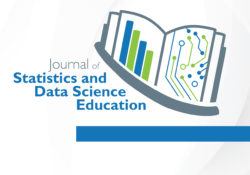eric.ed.gov har udgivet: The first goal of this study was to examine the impact of nine World Wide Web-based learning modules on learning as measured on both online module quizzes and in-class exams. The modules were designed to support fundamental concepts in entry-level college mathematics courses. The second and third goals of this study were to determine the learner characteristics and strategies that affect student performance on the nine Web-based learning modules. Data sources included: a demographic survey; nine Web-based instructional module quizzes; three in-class quizzes; three in-class, paper-based quiz surveys; an in-class final exam; an exit survey; and face-to-face interviews. Findings indicated that students who scored above 80% on the module quizzes also did better on in-class exams. Those who were self-motivated, focused, and self-disciplined had greater success in… Continue Reading →
Like this:
Like Loading...

tandfonline.com har udgivet en rapport under søgningen “Teacher Education Mathematics”: Abstract Formulae display:?Mathematical formulae have been encoded as MathML and are displayed in this HTML version using MathJax in order to improve their display. Uncheck the box to turn MathJax off. This feature requires Javascript. Click on a formula to zoom. Abstract The advancements in technological innovations have had a substantial impact on the Internet infrastructure, Web technology, and the usefulness of e-learning systems. This requires a discrete initiative to exploit the full capabilities of technological innovation to improve the functional characteristics of e-learning systems, the ensuing benefits, and to sustain educational challenges. A context-based model that incorporates explicit and widely accepted determinants of information systems success, technology acceptance, e-learning success models, and technological innovation has been developed. Empirically, the… Continue Reading →
Like this:
Like Loading...
tandfonline.com har udgivet en rapport under søgningen “Teacher Education Mathematics”: ABSTRACT Formulae display:?Mathematical formulae have been encoded as MathML and are displayed in this HTML version using MathJax in order to improve their display. Uncheck the box to turn MathJax off. This feature requires Javascript. Click on a formula to zoom. ABSTRACT A repeated crossover experiment comparing learning among students handing in pen-and-paper homework (PPH) with students handing in web-based homework (WBH) has been conducted. The system used in the experiments, the tutor-web, has been used to deliver homework problems to thousands of students in mathematics and statistics over several years. Since 2011, experimental changes have been made regarding how the system allocates items to students, how grading is done, and the type of feedback provided. The experiment described here… Continue Reading →
Like this:
Like Loading...
eric.ed.gov har udgivet: Much debate surrounds the effectiveness of the common educational practice of homework (Cooper et al., 2006). A randomized-controlled trial has shown that using a web-based homework system that provides immediate feedback to students, while they are doing their mathematics homework, and detailed item reports to teachers significantly improves student learning. The use of that data also changed the homework review process, leading to a more comprehensive and meaningful review of student errors and misconceptions. [For the complete proceedings, see ED597799.] Link til kilde
Like this:
Like Loading...

